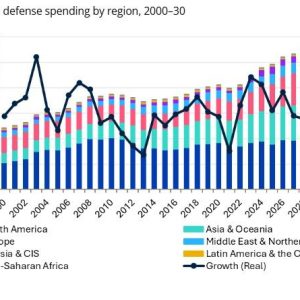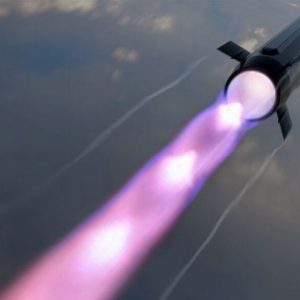In an era where technological advancements continue to redefine the boundaries of warfare, the future of space militarisation has emerged as a critical topic of discussion. As nations invest in space technology for both defensive and offensive capabilities, understanding the trends, challenges, and potential global implications becomes paramount.

Emerging Trends in the Future of Space Militarisation
Space Weaponisation and Deterrence
The evolution of space technology has paved the way for the weaponisation of outer space. This trend involves the development of anti-satellite missiles, directed energy weapons, and other systems that can potentially disrupt or destroy adversary satellites. The goal is to establish deterrence and protect national interests by showcasing the capability to neutralise hostile assets in space.
Dual-Use Technologies
An emerging trend in Future of Space Militarisation is the dual-use nature of many space technologies. Satellites, originally designed for communication, navigation, and scientific research, can be repurposed for military applications such as reconnaissance, surveillance, and intelligence gathering. This blurring of lines between civilian and military use raises ethical and regulatory questions.
Challenges in the Path of Space Militarisation
Debris and Environmental Concerns
As space becomes increasingly congested with satellites and debris, the risk of collisions and the creation of additional space debris grows. Such debris poses threats to both operational satellites and the long-term sustainability of outer space. Finding solutions to manage debris and promote responsible space operations remains a significant challenge.
Arms Race and Proliferation
The militarization of space could potentially lead to an arms race as nations strive to develop advanced space-based capabilities. This proliferation of weaponry in orbit heightens tensions and increases the likelihood of conflicts spilling over into outer space. Preventing an arms race and ensuring the peaceful use of space demand international cooperation and agreements.
Global Implications and International Perspectives
Geopolitical Dynamics
The militarization of space introduces new dimensions to geopolitical dynamics. The ability to control and deny access to critical space assets can impact a nation’s strategic advantage on Earth. This power projection in space extends influence beyond borders, reshaping international power balances and alliances.
The Need for Multilateral Agreements
In response to the challenges posed by space militarisation, efforts are being made to establish multilateral agreements that regulate activities in outer space. Treaties such as the Outer Space Treaty and the Prevention of an Arms Race in Outer Space (PAROS) treaty aim to promote the peaceful use of space and prevent the placement of weapons in orbit.
FAQs (Frequently Asked Questions)
Q1: What is space militarisation?
A1: Space militarisation refers to the development and deployment of military capabilities in outer space, including technologies for defence, reconnaissance, and offensive operations.
Q2: What are the dual-use technologies in space?
A2: Dual-use technologies in space are systems originally designed for civilian purposes but can be adapted for military applications, such as satellites used for communication and reconnaissance.
Q3: How does space debris impact space operations?
A3: Space debris poses risks to operational satellites and the overall sustainability of outer space by increasing the likelihood of collisions and creating further debris.
Q4: What is the Outer Space Treaty?
A4: The Outer Space Treaty is an international agreement that aims to promote the peaceful use of outer space and prohibits the placement of nuclear weapons and other weapons of mass destruction in orbit.
Q5: Why is international cooperation important for space security?
A5: International cooperation is crucial to prevent an arms race, manage space debris, and establish norms for responsible space operations, ensuring the security and sustainability of outer space.
In conclusion, the future of space militarization presents a complex interplay of technological advancements, geopolitical considerations, and ethical dilemmas. As nations continue to invest in space capabilities, the need for responsible use, international cooperation, and arms control agreements becomes imperative. By navigating emerging trends and addressing challenges collectively, the global community can work towards a future where the peaceful and secure use of outer space is maintained.











